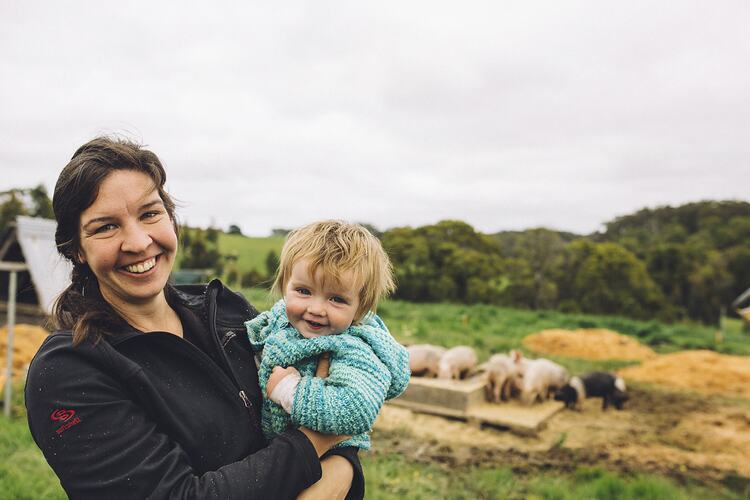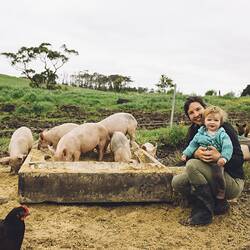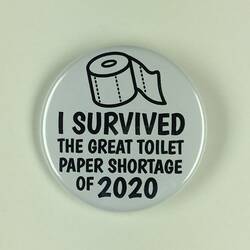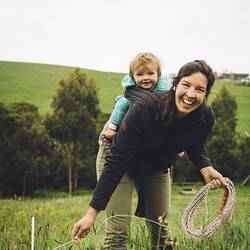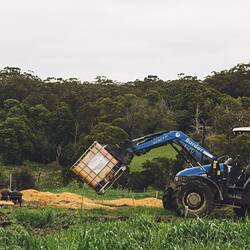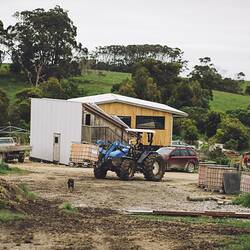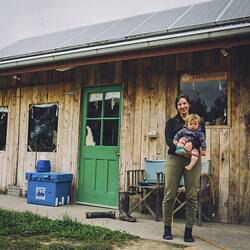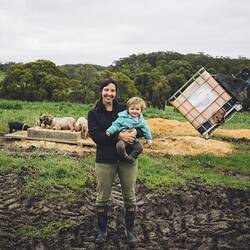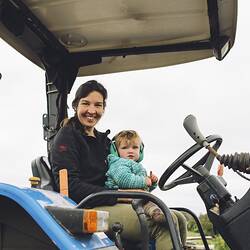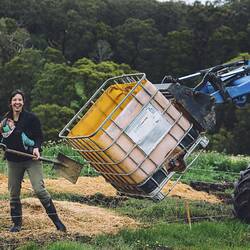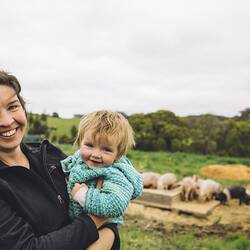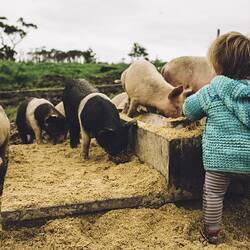"So it's ended up, it's been a really a really nice conversation with customers about the providence of food, the supply chain of food, and the quality and access to local products. Which sometimes can feel really hidden and hard to access." - Amelia Bright
Amelia Bright, knowing that COVID-19 was coming, at first thought about restricting her breeding program so that she wasn't overstocked. However she found the panic buying in the supermarkets worked in her favour as the food hamper delivery service she ran, Prom Coast Food Collective, suddenly became a wanted product. Amelia remembers: "We were working on a monthly cycle and in that first week we thought: Ah let's see if we can just slip a little exceptional one in . And we had massive sales off the back of a good March anyway. And then we thought: Oh this is it, we're going from monthly to weekly."
Initially using drop off points around Melbourne, she found that her customers wanted home delivery. Their sales went from approximately 100 customers a month before COVID-19, to 180 to 200 customers a week during the first 5 weeks, then finally 120 to 180 customers in May 2020. Many customers had already followed them on social media but had never made an order before. "It took COVID to have people make that jump."
And the Collective, which before had just managed to pay its bills, was beginning to financially pay for itself and they could reinvest in the program. Amelia says: "It's such a nice way to move product. You still get a relationship. Our supply chain is so short that it comes from me, I help pack it, it's packed into your box, and it's delivered to the customer's door. You're missing the interface of a market but it's still farmer direct. There's no extra middle man, there's no extra logistics team; we're it." It's now worked out that the members of the Collective are doing just as well now financially as they did before the pandemic.
Amelia and her husband were approached by foreign workers for employment. However the financial uncertainty of the future around COVID-19 meant it didn't pan out. She explained: "We couldn't supply them with full time work . They wanted two full time wages which we couldn't absorb."
One good thing to come out of this pandemic is the use of technology. Amelia, with her sudden increase in customers, had to use an app to support her business. Previously she had planned the deliveries herself: "I just plugged in ten names at a time on google maps! And I think I might have been doing that for about 40, 50 names once a month. Like it wasn't a big deal, I could visually split what areas [required deliveries] and just use my knowledge of how suburbs work but when all of a sudden I had to do 200 every week, I needed some help with that."
Amelia still needs to make decisions about what to do for the rest of the year, especially around what to do with Christmas hams. She says: "The Jobkeeper is finishing up in September, the holiday for people paying their mortgages in September is also finishing. Does that mean people are not going to want to pay a premium for a Christmas ham? Or are we going to be coming out of it everyone sick of being locked down and we are going to have a great big almighty family gathering party in December? And our sales are going to go nuts? So no one knows."
Reference:
- Telephone interview with Amelia Bright (Amber Creek Farm and Sawmill & Prom Coast Food Collective) Friday 22 May 2020
More Information
-
Keywords
-
Localities
-
Authors
-
Article types
